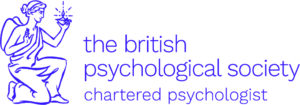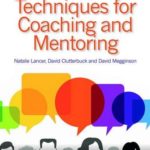
I’m Natalie,
I am an academic consultant and organise online study retreats.
I care about you and your work and know the struggle and pain it takes to write something worth reading. I would love to help you create and realise your own personal research project. I can help you draw on your experiences to come up with a meaningful topic to research or a personal angle on a specific topic. I will guide you at whatever stage you are at in your research, from literature review, to data collection and analysis, thinking through how theoretical concepts can deepen your analysis, through to the final coherent end project. Everyone needs something different, and I will listen carefully to your specific concerns. I will be with you in your own unique journey and help you keep going by guiding you to tap into your inner resources. I will show you how your difficulties are because you are in the process of birthing an amazing idea. If I feel you need a different sort of service, I will signpost you on to other organisations.

My writing skills
I have excellent writing skills. My thesis has been singled out as reading extremely well. I was awarded the British Psychological Society’s Special Group in Coaching Psychology Student Project Award in July 2019 and was highly commended by the judges of the 2019 Gwynne-Vaughan Medal, Birkbeck, University of London as a result of my research impact and writing skills. I am the author of two published books. Many readers comment on my books’ clarity. I have written one paper for publication in a BPS journal and am working on several others. I achieved a Distinction for my Masters in Education Policy, as a result of clear academic writing for my essays and dissertation.
My research:
I was awarded my PhD (no corrections) in Psychology at Birkbeck, University of London. I was trained by one of the top Interpretative Phenomenological Analysts in the world, Dr Virginia Eatough.
I researched the personal growth of university students who had professional coaching and found that coaching specifically helped the students in four main ways. Firstly, coaching gave the students a greater sense of control by imparting specific strategies for managing tasks and problems, which led to an increase in productivity and self-care. Secondly, coaching gave the students new ways of considering problems which led to specific actions. Thirdly, coaching helped the students achieve greater balance, focus and clarity in their day-to-day lives and plans. Finally, coaching increased the students’ confidence, both socially and academically, leading them to feel more motivated.
All but one participant described the coaching as a ‘catalyst’, or words to that effect, without prompting. For example, one student said if he had only known what he had learnt this year, the year before, he could have got a first in his degree. The students reflected on the unique space and time for reflection that coaching affords. Furthermore, the students construed their coaches in a variety of roles including familial figures, objective professionals, role models, cheerleaders and motivators, validators and as similar to but different from a friend. In the final part of my PhD, I analysed the students’ issues that they brought to coaching and derived eight tensions, called the ‘Eight Tensions Framework’ that students navigate at university.
An accredited coach
As an accredited coach, with the Association for Coaching, I support students in navigating these tensions and draw on this framework directly in the Study Hub Experience. Examples of the tensions include narrowing and expanding interests, and ploughing ahead or laying fallow.
My teaching and supervision
I have taught at various universities and currently work at the New School of Psychotherapy and Counselling, London. My primary role is as a Master’s supervisor and second supervisor to PhD students.
Student testimonial
“Natalie was my supervisor whilst I was writing my second MSc dissertation. Without her depth of knowledge, academic rigour and imagination, I feel my dissertation would not have had the breadth in the subject area, structure and insights it now has. Writing my dissertation became an experience with Natalie, not a process. Her feedback was via Loom (face to face and recorded) and it was prompt and fearless, with her personality and humour in there too. I never felt she was inhibited about how I was going to hear the feedback. She didn’t waste time on trying to package it. I liked her precision and clear style – it was very motivating.
I looked forward to receiving her feedback as I knew as a result of it, my knowledge and research capability was going to increase and my dissertation was going to improve. Natalie’s feedback included structure, order, grammar, subject matter, pairing of ideas, bringing insights to the surface, drawing out my own style, and being braver in my assertions and contribution to the field. Natalie left it up to me as to whether I incorporated her feedback but her feedback was immediate (literally within 4 minutes of sending her something once), instinctive, and grounded in logic and the subject matter so it was difficult not to. Natalie identified links I hadn’t noticed, and at the same time, was very generous to the work, and appreciated that it was my idea we were trying to craft, and she ensured that that remained the purpose, but took it to a level I hadn’t appreciated. I completed by dissertation whilst working full time and it wouldn’t have worked if I hadn’t experienced her conscientiousness and discipline.
My words to Natalie at the end of my academic journey with Natalie was ‘your supervision is the best I’ve ever experienced, prompt and fearless, exactly what you need to write something worth reading’.”
Penny Godfrey, Master’s student

My ethos
My professional ethos is about breaking down barriers in a variety of ways: breaking down complex ideas, which are sometimes made more mysterious by academic jargon, into understandable nuggets; breaking down anxieties about writing or examinations; and breaking down the seemingly insurmountable difficulty of achieving a degree at any level, by helping students taking it one step at a time. My mission is to help students give shape to their innovative research projects, guiding them in surfacing new insights, drawing out their own style and helping them create an end product that transcends their expectations.
Working together
I hope to be able to work with you on your project on a Study Hub Experience. I will help move you forward to keep you energised and stimulated.
I also offer one-to-one extended consultations and give talks to Graduate Schools or university departments about how PhD students can maximise their PhD experience.
Please email or call me to find out more.
Availability and accessibility to my clients
I am efficient, available and accessible to students at all times. I know what it is like to need some quick advice or encouragement in order to continue work and I prioritise excellent communication. I understand that students are often juggling busy and complex lives alongside their studies.
Contributions to learned societies
I am a Chartered Member of the British Psychological Society (BPS). During my PhD I became the PsyPAG rep for the British Psychological Society’s Special Group in Coaching Psychology (SGCP) and helped promote SGCP to undergraduates and postgraduates. In July 2019, I became Secretary of the Group and in July 2022, I became Chair. I am a reviewer for the journal, The Coaching Psychologist and the European Journal for Qualitative Research in Psychotherapy.
 Awards
Awards
Highly commended by the judges of the 2019 Gwynne-Vaughan Medal (awarded to Birkbeck PhD students who demonstrate the most notable contribution to their field while undertaking their PhD).
Winner of the British Psychological Society’s Special Group in Coaching Psychology Student Project Award 2019.
Publications
Lancer, N. (2008). Getting into Oxford and Cambridge. London: Trotman Publishing

Lancer, N., Clutterbuck, D., & Megginson, D. (2016). Techniques for coaching and mentoring (2nd ed.). Oxford: Routledge.

Lancer, N. & Eatough, V. (2018) One-to-one coaching as a catalyst for personal development: An Interpretative Phenomenological Analysis of coaching undergraduates at a UK university, International Coaching Psychology Review, 13(1)
Lancer, N. (in press) ‘Yes Woman’: A career coach reflects on the experience of doing a PhD and its contribution to Coaching Psychology, The Coaching Psychologist, 16(2)
Book a Study Hub Experience Day now
My expertise in research methods, combined with my coaching and teaching skills, will help you realise your potential in producing a stand-out, finished thesis you can be proud of – forever.

Dr Natalie Lancer CPsychol
Chartered Psychologist
Contact
Get in touch with me either via direct email or call:
Click Here to Email: [email protected]
Click Here to Call: 07747 612 513
